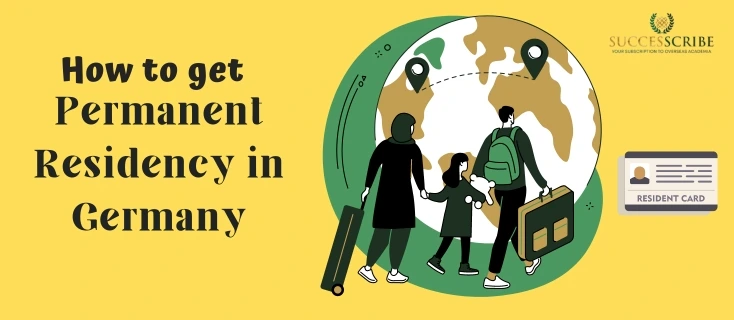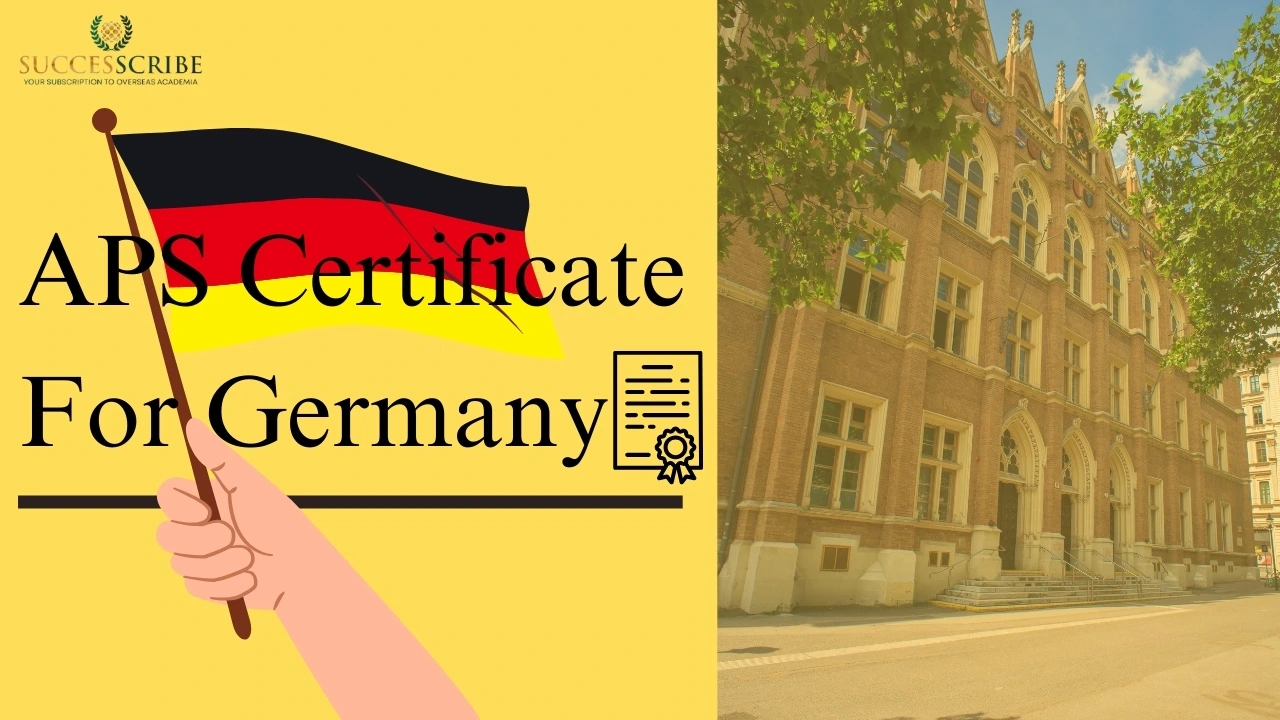Germany is one of the most popular countries of choice for immigrants due to its firm economy, quality of life, and access to travel in the European Union. For those who move to Germany for work, education, or family reunion, everyone’s ultimate goal is usually gaining permanent residence. In this all-inclusive guide, we will provide you with the ways to achieve permanent residency in Germany by outlining the types of residence permits, how to get permanent residency in Germany, eligibility criteria, application procedures, and tips for an effective journey towards permanent settlement.
Types of Residency in Germany
Before diving into the steps for permanent residency, it’s essential to understand the different types of residence permits in Germany:
- Temporary Residence Permit (Aufenthaltserlaubnis): This is the most common residence permit for non-EU nationals, issued for specific purposes such as work, study, or family reunification. It’s usually granted for one to three years and is renewable as long as the purpose for which it was issued remains valid.
- EU Blue Card: This temporary residence permit is specifically for highly qualified professionals from outside the EU. It targets professionals needed in filling skill shortages in emerging professions like IT, engineering and medical fields. The Blue Card is issued for four years or for the duration of the work contract and provides quick ways of achieving a permanent residence.
- Permanent Settlement Permit: It is the first sort of permanent stay in Germany. Under this permit, a person can live in and work in Germany without any kind of restriction on his employment and without renewal.
- EU Long-Term Residence Permit: This type of permanent residence is granted to non-EU nationals who have lived in an EU country for an extended period, It allows the holder to move freely within the EU and settle in other EU member states under certain conditions.
Eligibility Criteria for Permanent Residency in Germany
If you have a question about how to get Permanent residency in Germany, To obtain permanent residency in Germany, you must fulfil specific eligibility criteria, which vary slightly depending on your situation (e.g., whether you are a student, worker, or EU Blue Card holder). The following are the general conditions for obtaining a Permanent Settlement Permit.
Residence Duration
- General applicant: You must have lived in Germany for at least 5 years with a valid residence permit.
- EU Blue Card holders: You can apply for permanent residency after just 33 months of employment, or after 21 months if you have achieved B1 level in the German language.
Secure Livelihood
It is depicted on grounds of the principle of living sustainably by showing that one is self-financing, without public welfare. These can be a stable job or stable income source, and sufficient savings or social benefits such as pensions,
Contributions to Social Security
You must have been contributing for at least 60 months in the German old-age pension, health, and unemployment insurance fund (33 months for those with a Blue Card).
Residence
This entails proof that one has appropriate accommodation for himself and dependents, residence commensurate with the local standards in terms of size and quality.
German Language Skills
All applicants should have the B1 level of proficiency in the German language, as per the Common European Framework of Reference for Languages. For family reunification applications, this requirement is lowered to A1. There is no requirement at all for highly skilled professionals, and so on.
Integration course
Most applicants will be required to join an integration course which entails a language learning course and that part of it regarding German society, laws, and culture. You might be exempt from this if you are already fluent in German or have certain qualifications.
No Criminal Record
Applicants cannot have any crimes in their past. Those serious crimes mean you will never be granted permanent residency.
Health Insurance
You must have appropriate health insurance cover. The cover must be based either on public health services or private insurance. You must present the evidence of cover with your application.
Other Reasons for Permanent Residency
Many people researching how to get permanent residency in Germany are aiming to benefit from the stability and opportunities the country offers. You could be eligible for permanent residence based on other reasons. Let’s look at the most common ones below:
1. Permanent Residency for EU Blue Card Holders
Being an EU Blue Card holder would shorten your path towards permanent residency. Thus, you will be eligible to apply for the Permanent Settlement Permit after 33 months of holding the Blue Card, provided you have paid for social security within this period. In case you can prove that you have acquired B1-level German, you may then file for the same even sooner-after 21 months.
Application Stages for an EU Blue Card Holder
- Work; Pay social security contributions.
- Attain the B1 level in German as of the application date
- Apply in person to the local immigration office or Ausländerbehörde
2. Permanent Residency for Students
International students are allowed to remain in Germany, and be able to work here, for two years after graduation. Then they may apply for unlimited residence if they have been in an employment position “in the occupation for which they were trained”. But only if they had been granted the 18 months residence permit at first with which to seek employment while still in Germany at the end of their university studies.
Student Process:
- Graduate from a German university
- Work in your field of study within the 18-month job seeking visa year.
- Apply after two years of employment and fulfilment of other requirements, like social security contributions, for permanent residence.
3. Permanent Residency by Skilled Employees
Skilled employees who have a limited residence permit in Germany will be qualified to be given permanent residence for the period of five years of employment in Germany along with fulfilment of the remaining requirements such as having language competence, social security contributions, etc.
Eligibility Process for Skilled Employees
- Should have 5 years of work experience continuous.
- Should be registered with the social security system for at least 60 months.
- Obtain an integration course certificate and pass on B1 level of German
- Apply for permanent residence to the Office of immigration.
4. Permanent Residence of Entrepreneurs and Self-Employed Persons
You can get permanent residence if the business has been profitable and stable. This means after three years since the business has run. You are supposed to prove that the business is sound financially and that there is sufficient income to cater for you and dependents.
Steps for Entrepreneurs
- Start and operate a successful business in Germany
- Prove that the business is sound and viable.
- Meets general requirements.
- registers as an applicant on the third year of stay in immigration office at residence
5. Permanent Residency for Families
Spouses and Family members of German citizens or permanent residents can also apply for permanent residency. Spouses, for example, have the prerequisite as a rule of three years of marriage that has been conducted in Germany if there have been A1-level skills in German language and other basic requirements.
Procedure for family members
- Have been living in Germany for at least three years as a spouse or family member of an applicant
- Has basic knowledge of the German language
- Files an application with the right immigration authority of his place
How to apply for Permanent Residency in Germany
Once one qualifies for selection, it becomes easy to apply for permanent residency in Germany. By following the correct steps on how to get permanent residency in Germany, you can eventually apply for German citizenship and fully integrate into the country. Here are the step-by-step procedures below:
Documents Needed Before Applying
All the documents one needs to submit when applying are collected before applying. These comprise the following:
- Valid passport
- Proof of domicile-for example, tenancy agreement and registration documents
- Evidence of financial means-for example, payslips, tax returns, or bank statements
- Proof of social security contributions paid
- Health insurance proof
- Proof of knowledge of the German language if applying for a permanent residence
- Qualification certificate of integration course (if not applicable)
- Character certificate
- Recent passport-sized photos.
Get an appointment with the local immigration office
Depending on the size of the city, you will need to book your appointment a few weeks in advance as there is always a long queue.
Submit you application
Report with your completed application and attachments on the day of appointment. The Immigration Office will go through your case and may request other information or clarification.
Pay application fee
Application fees for permanent residence amount to something around €135. In a few cases, fees are different.
Residence permit application processing times
The processing times for residence permits differ and can take an ample amount of time. There is a waiting period of several weeks up to severalmonths before the final approval or rejection post-notifications are received.
Get Your Permanent Residence Permit
Whether you’re a student, worker, or entrepreneur, learning how to get permanent residency in Germany will help you secure a stable future in the country. You are now eligible for your permanent residence permit, through which you are free to reside and also work in Germany without any type of limitation.
Benefits of Holding Permanent Residency in Germany

By having permanent residency in Germany, you get a lot of facilities and rights. Some of the benefits of having permanent residency in Germany include:
- Free Right to Work: With permanent residence, you are free to work at any place for any profession and also self-employment or freelancing without extra permits.
- No need for Renewal: No renewal, because permanent residence does not need renewal and thus is more secure and stable than temporary residence permits.
- Right to Social Benefits: Permanent residents are granted the right to social benefits, such as certain forms of unemployment benefits, pensions, and healthcare.
- Freedom of movement – they have rights to move freely within the EU and, for instance, in other countries of the Schengen Area, to remain there for up to three months within any 180-day period outside their country of residence.
- Path to Citizenship: And after many years of permanent residence in Germany, you can apply for German citizenship, but based on additional criteria that should be passed, among which is likely language and integration.
Conclusion
Understanding how to get permanent residency in Germany is crucial for those who plan to stay in the country long-term and enjoy its many benefits. Becoming a permanent resident of Germany is a great step forward for any immigrant, but all that it offers is stability and freedom-and an enormous number of rights, and so on. And what determines the good application actually are eligibility criteria and the way to apply for it. So, the permanent residents can avail of all these benefits while they are residing in Germany and moving on to their long-term future there in this vibrant and dynamic country.
Related Post
Study in Germany after 12th
English taught bachelors degree
Computer science in Germany
German student visa Interview Questions












